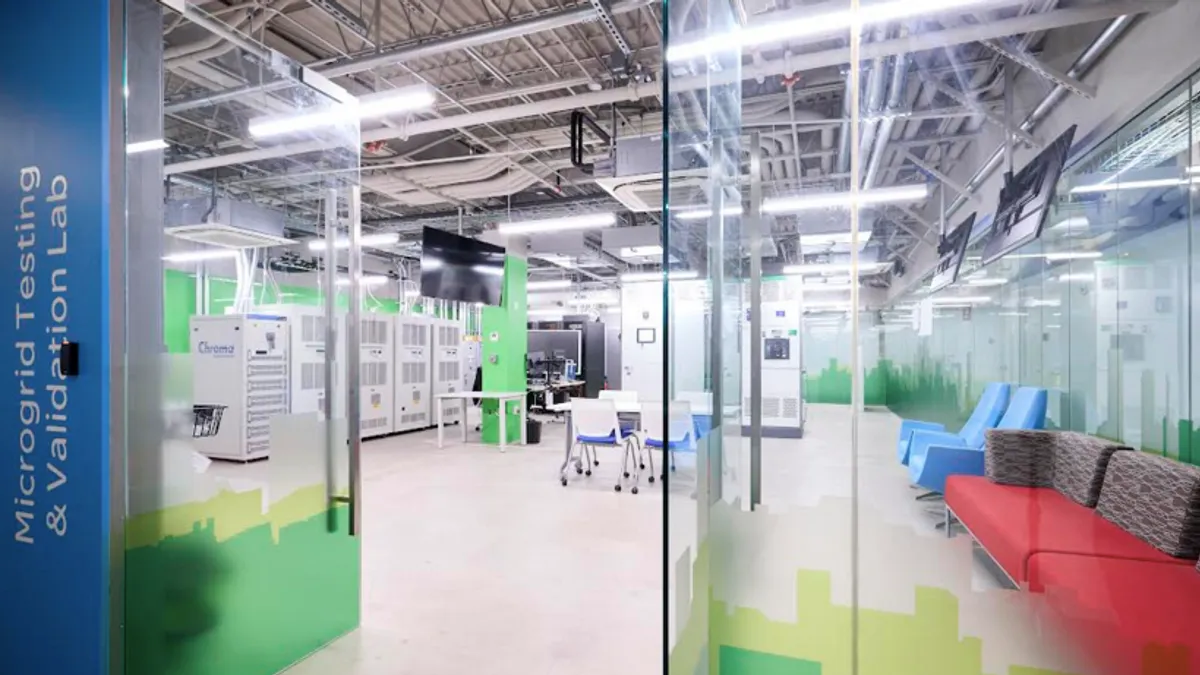As the construction industry continues to trudge through a historic and long-standing labor shortage, contractors are trying to find qualified job candidates every way they can.
But relying on traditional methods, especially when it comes to technology for identifying potential employees, can fall flat.
In a traditional recruiting process, employees market themselves through their past experience or studies to try and fill positions.

“That works for coming out of a university into the workforce, but that recruitment pipeline completely breaks down and falls apart when you apply it to the skilled landscape of craft professionals,” said Quincy Nadel, co-founder and COO at SkillHero, a recruiting platform for the industry.
That’s especially true for jobs that don’t require a specialized degree.
“Technology has been purpose-built to support college-to-workforce and not direct-to-workforce from a high school or trade school,” she added.
Newer recruitment screening processes from platforms like Skillit and SkillHero can help contractors find ideal job candidates by mining more data and information to find more potential job candidates, especially those with non-traditional background experiences.
Platforms that use artificial intelligence have “the ability to consume more data and information than any human possibly could,” Nadel said, and can identify candidates who have either direct or related skills for a position, especially those who may not see themselves as a candidate for the job on their own.
“You can look at an individual who has a certain skill set that might not traditionally or typically apply for an open position at that employer,” she said. “Maybe they’re one degree off and through upskilling, then they would be a perfect fit.”
Screen for skill
Contractors may also miss candidates if they’re screening for jobs by position rather than by their skillset. It might exclude job candidates who have the right skills but previously applied them to a different kind of project. For example, posting that a company is looking for a carpenter who worked on a specific type of job might exclude someone who has those skills but hasn’t had that exact experience before.
“[It] begs the question of is there really a labor shortage or is it in fact just a skills gap because industry has been forced to rely on legacy trade definitions rather than actual informed skills of workers?” said Fraser Patterson, founder and CEO of Skillit, a construction recruiting platform.

Looking for skills can also help employees who may not have seen themselves in an industry be brought into consideration for these roles. That can help bring women into the field, Patterson said, considering that previous research has shown that women will only apply for a job when they feel they meet 100% of the job requirements, where men will do so if they meet 60%.
Looking at skills and interests instead of previous experience or qualifications can also identify potential candidates who may not have a high school diploma or GED, he added.
“If the industry were to transition itself toward a skills-based hiring approach, then it would essentially increase the candidate pool, and it would speak more to the individual workers regardless of their demographic and speak to them more about their individual skills,” he said.
Tailor background checks
Background checks can be essential when hiring for construction jobs. Criminal records or drug tests can impact who gets hired, and in some cases, something like a DUI could preclude someone from handling heavy equipment.
But using the same background check criteria for every open position on a job can cut out candidates who can work in other kinds of roles for a company, said Jeff Ernste, chief sales and marketing officer of Orange Tree Employment Screening.
So, while someone may have a past offense that disqualifies them for a safety or transportation job right now, they may still have valuable experience to fill another role.
“It would allow them to do something that didn’t require operating heavy equipment or something in a driver capacity,” he said.
A more carefully calibrated background check will allow a candidate to be considered for jobs while helping to set them up for their future. That’s key if someone’s past offenses will not disqualify them after a certain period of time. Instead of telling them to come back then, the worker is already part of the company, and can gain useful skills during that time.
“This is a country that believes that people can redeem themselves. Over time, they can be eligible for different positions,” Ernste said.
Another approach is to have candidates apply and then match them to a role based on the screening process. Orange Tree recently worked with a transportation client that previously would have candidates apply for a specific position, and if they were excluded due to something found on a background check, that candidate would be eliminated altogether.
Now, the company looks at the candidate first and matches them with the positions they are qualified for. The company had a 6% improvement in the number of candidates hired.





















